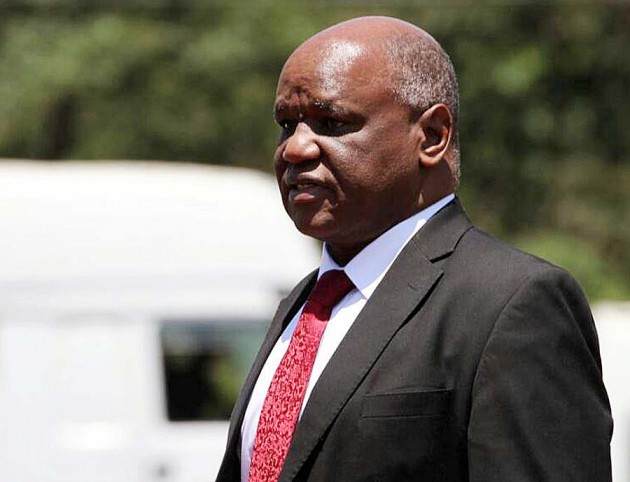HARARE – Zimbabwe’s Constitutional Court on Wednesday quashed a May ruling of the High Court that the president’s decision to extend Chief Justice Luke Malaba’s tenure breached the constitution because he had reached the retirement age of 70.
A brief judgement of the Constitutional Court read by Justices Rita Makarau and Bharat Patel said the High Court judgement had no effect unless confirmed by the top court – ending arguments over whether Malaba was in contempt when he continued reporting for work.
Justice Minister Ziyambi Ziyambi and the Judicial Service Commission had appealed the ruling by three High Court judges at the Supreme Court. But before the Supreme Court had pronounced itself, lawyer Professor Lovemore Madhuku approached the ConCourt on behalf of Zanu PF activist Marx Mapungu in June, arguing that President Emmerson Mnangagwa acted appropriately and constitutionally by extending Malaba’s term of office by five years following controversial constitutional amendments.
Mapungu sought an order varying or not confirming an order of constitutional invalidity made by the High Court. This has been upheld by the Constitutional Court.
“Paragraph one and two of the operative part of the High Court judgement have no force or effect unless confirmed by this court. The constitutional validity is not confirmed and there is no order as to costs,” said Justice Makarau on Wednesday.
Madhuku told journalists that this brings to an end all legal challenges to Malaba’s term extension.
Said Madhuku: “The ConCourt has set aside the decision of the High Court that had said the CJ was not legally in office, by Justices Happias Zhou, Edith Mushore and Jester Charewa.
“The court said the order by the judges had to be confirmed by the Constitutional Court for it to be valid. The ConCourt has refused to confirm that order and has set it aside.
“It means at this end, the CJ is properly elected to remain in office and the president properly approved that election. It means from day one we never had a problem with CJ being in office, it has always been constitutional.
“What this order of the Constitutional Court means is that there are no longer any appeals before the Supreme Court. They have automatically fallen away. We no longer have any issue concerning the Chief Justice. Any matters that were hanging in the lower courts, whether the High Court or the Supreme Court, are no longer there by operation of this constitutional order.”
The Malaba case became the focus of a tussle between the High Court and President Mnangagwa, who introduced a constitutional amendment that raised the retirement of Constitutional and Supreme Court judges to 75 from 70.
Critics accuse Mnangagwa of seeking to influence the judiciary, a charge he denies.
The High Court judges had ruled that a term extension for an incumbent public official – including a chief justice and the president – could only take place after it is confirmed by a public referendum.
The ruling by the Constitutional Court whose judges are beneficiaries of the term extension will not ease concerns by lawyers and even opposition parties who accuse the government of “judicial capture”.
















